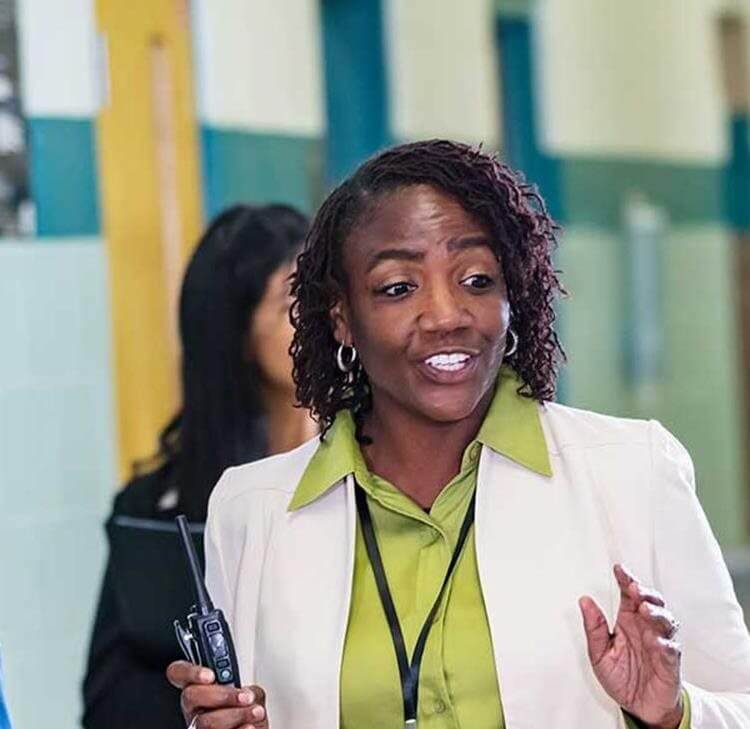Ofsted has now published details of its new approach to the inspection of schools and other education providers, having carried out a full public consultation on its proposals earlier this year.
Ofsted's consultation outcome has been published alongside an updated education inspection framework, new inspection toolkits and operating guides for inspectors, with the changes due to take effect from 10 November 2025.
The new approach to inspection
The consultation outcome confirms the end of the road for single-phrase judgements for overall effectiveness, but grades for individual evaluation areas are here to stay.
The new approach introduces a five-point grading scale from 'exceptional' through to 'urgent improvement', which will apply across six core evaluation areas for all schools, including: inclusion; curriculum and teaching; achievement; attendance and behaviour; personal development and well-being; and leadership and governance (plus additional judgements for early years and post-16 where relevant).
Safeguarding will continue to be evaluated separately, with schools receiving a 'met' or 'not met' grade for this area.
When it comes to reporting, Ofsted has prioritised the needs of parents. The new 'report cards' will set out the grade for each evaluation area along with narrative findings and contextual data about the school, and the consultation outcome acknowledges that, "report cards first and foremost have been, and should be, designed for parents and carers."
With the new format, Ofsted aims to provide more detailed findings, and importantly, a more nuanced view on a school's strengths and weaknesses.
What has changed since the consultation was launched?
Ofsted has reflected on views and feedback gathered during the consultation, as evidenced by a range of adjustments to its original proposals.
These include a reduced number of core evaluation areas, with the stated aim of ensuring greater consistency and reducing workload for school staff. Terminology used in the grading scale has been amended to increase clarity, and the definitions have been tightened for improved differentiation.
Ofsted's new methodology has also undergone some further changes, and the previous 'best fit' approach - which has long attracted criticism for leaving too much to the discretion of individual inspectors - has now been replaced by a 'secure fit' model.
The aim here is a more standardised approach: schools will now need to meet every standard within a grade in order for that grade to be awarded, with 'expected standard' to be considered as the starting point in each case.
Balancing inclusion and achievement
While some of the new core evaluation areas will be familiar to those used to the current framework, 'inclusion' and 'achievement' were not previously inspected as standalone areas.
Ofsted's continuous message has been that disadvantaged and vulnerable children are at the heart of their reforms, that inclusion takes centre stage and that achievement matters for all groups. However, we know that schools and trusts frequently express frustration that Ofsted has not fully taken into account a school's specific context when considering outcomes and attainment.
Schools with higher rates of SEND pupils and pupils from socioeconomically disadvantaged backgrounds for example, may be concerned about an enhanced focus on achievement, particularly when considered against the crude figures of national attainment and progress data.
Ofsted will argue that the toolkits have been designed to cater for this and that the evidence-gathering in this area is not just about the pure data. The coming months will test whether that translates on the ground and whether the report cards will effectively communicate the impact of these challenges to parents.
Will the changes deliver greater consistency?
From our work with schools and trusts, we know that a lack of consistency across inspections is a significant recurring point of dissatisfaction, and this is often felt particularly keenly by larger multi-academy trusts who experience frequent inspections.
Ofsted has recognised the need to improve consistency, and the consultation outcome sets out various changes aimed at addressing these concerns in terms of gradings, including measures around quality assurance and moderation.
Changes to inspection methodology, including the new 'secure fit' approach and additional transparency in the toolkit around the types of evidence inspectors should consider also aim to increase consistency in outcomes by reducing the degree of discretion awarded to individual inspectors.
Unpleasant surprises…
Clearly, all inspections cannot and should not be identical - there must be some fluidity to allow for the characteristics of individual settings and, in reality, personalities.
However, what often causes frustration for schools and trusts, and leads to complaints about inspection, is "surprises" in the inspection experience. Inconsistency in inspectors' approach to evidence gathering, and to interactions with staff and leaders, have historically been repeated points of concern. The tension that these "surprises" create can send an inspection entirely off-course.
It is unclear whether the new approach goes far enough to constitute the kind of institutional change that Ofsted has been under pressure to deliver, but ultimately, improving dialogue and collaboration between inspectors and schools will be essential in ensuring an inspection outcome is perceived to be fair.
It is worth adding that we have observed a notable reduction in the number of complaints about inspection within the last academic year, compared to 2022 to 2024. This is indicative, hopefully, of Ofsted's action thus far, and perhaps in particular the removal of overall effectiveness grades.
Wider issues
There are of course wider questions and concerns not directly addressed by the consultation outcome. Many stakeholders have questioned whether the new framework amounts to genuine change - are the reforms little more than rebranded terminology?
It's important to return to the key trigger for this reform, the death of Ruth Perry and the surrounding findings and conversation highlighted the impact that inspection can have on lives and careers. It remains to be seen whether these reforms will adequately mitigate the impact of inspection on school staff.
On a highly relevant point, the Department for Education's parallel consultation outcome on school accountability reform, published alongside the Ofsted reforms, confirms that, where Ofsted judges schools to be underperforming, mandatory intervention remains on the cards.
Immediate structural intervention remains the default policy position for schools in special measures, and, until September 2026 (allowing RISE to build its capacity in the interim), for schools requiring significant improvement. Although the increased reliance on RISE teams (for "stuck" schools and, eventually, schools requiring significant improvement) does mean a shift away from forced academisation and re-brokerage in those cases, high stakes are still at play.
What happens next?
Ofsted will begin inspecting under the new framework from 10 November 2025, but until Christmas will prioritise schools that have volunteered to undergo inspection. This allows Ofsted an initial period to evaluate and further shape the new process.
The Department for Education also proposes to launch a further consultation this term on options for using its new RISE teams to address low attainment in schools, so further routes to (non-structural) intervention could be on the cards.
Importantly, the future position on intervention remains subject to the contents and enactment of the Children's Wellbeing and Schools Bill, which is currently making its way through Parliament. The revised policy approach for maintained schools requiring significant improvement (as explained above) depends on this legislation coming into force, as it will remove directive academy orders for failing maintained schools.

Anna Fellows
Associate
anna.fellows@brownejacobson.com
+44 (0)115 976 6560
You may be interested in
Legal Update
Legal views on the Children’s Wellbeing and Schools Bill
Legal Update - Children’s Wellbeing and Schools Bill
Academies: Freedoms and intervention
Legal Update
DfE guidance update: A step closer to phone-free schools
Legal Update
Ofsted confirms changes to inspection framework
Press Release
Ofsted new inspection framework: Browne Jacobson comment
Legal Update
Changes to Ofsted inspection, school accountability and intervention
Press Release
Browne Jacobson bolsters education team with hires across key specialisms
Press Release
Education predictions: What does 2025 have in store for schools, trusts and universities?
Press Release
Children’s Wellbeing and Schools Bill: Comments from education lawyers
Legal Update
New practical guidance on challenging Ofsted inspections
Legal Update
What will the new RISE Scheme mean for schools and academy trusts?
Guide
New guidance for intervention in schools
Legal Update
Ofsted and intervention changes
Press Release
Comments on the publication of Ofsted’s new school inspection handbook
Press Release
King’s Speech 2024: Reaction from Browne Jacobson lawyers
Guide
Revisions to Ofsted’s complaints procedure: what you need to know
Legal Update
Ofsted reform: Where are we now and where do we go from here?
Legal Update
Inspector conduct – what will Ofsted do about it?
Press Release
Half of school leaders think Ofsted does not have the expertise for Multi-Academy Trust inspections, according to new survey
Legal Update
School leaders – share your views on the issues of the day
Legal Update
An update on Ofsted’s early monitoring programme: ineffective safeguarding
Legal Update
The role of Ofsted in school complaints
Legal Update
Safeguarding judgements and school intervention
Legal Update
A commentary on the Ofsted complaints procedure consultation
Legal Update
How multi-academy trusts are involved in school inspections
Press Release
Browne Jacobson’s C-suite exec level coaching team appoints two new education specialists
National law firm Browne Jacobson has grown its team behind its dedicated Space + Time executive coaching programme with the addition of two more qualified coaches who will work with clients in the education sector.
Legal Update
The return of Ofsted inspections
Omicron may have brought Ofsted inspections to a pause in December, but most of the autumn term was a busy period for the non-ministerial department, with a return to a full schedule of inspections and the targeted inspection of schools formerly exempt.
Press Release
Browne Jacobson hosts UK’s largest virtual legal careers event to boost access to careers in law
Legal Update
Bill introduced to Parliament to enable Ofsted to have powers to inspect MATs
A former teacher and MP on the current Commons Education Select Committee, Jonathan Gullis, has introduced a bill to give Ofsted the power to inspect Multi Academy Trusts (MATs).
Legal Update
Successful challenge to Secretary of State’s refusal to revoke directive academy order
Our client, Yew Tree Primary School, challenged the Secretary of State for Education’s (SSE) decision not to revoke a directive Academy Order.
Legal Update
Summary evaluations of multi-academy trusts
Opinion
Another Ofsted investigation resulting in prosecution – Independent school in Lincolnshire found operating illegally
Opinion
Second prosecution of its kind following Ofsted investigation for running an illegal school
A Head Teacher and her father were convicted at Westminster Magistrates’ Court for running an unregistered private school in Streatham.






























